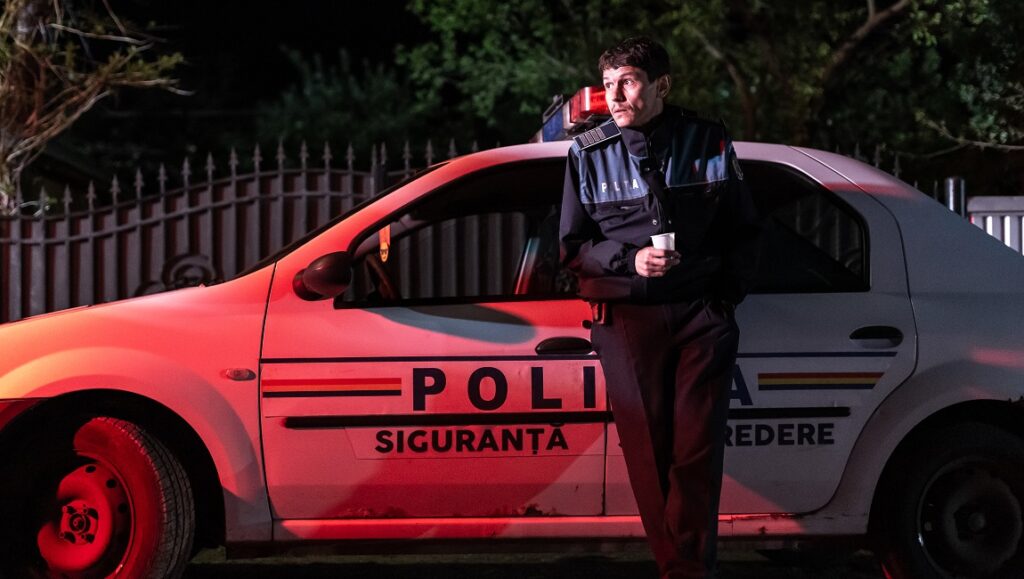The career of Romanian director Paul Negoescu has not been easy to pin down. His debut feature, A Month in Thailand (2012), was a remarkable, neo-Rohmerian character study — an expertly documented journey through Bucharest’s club scene on New Year’s Eve, which slips in its fictional shaping almost by sleight-of-hand, at least until a discombobulating full-circle ending. In 2016, the writer-director made an unexpected left-turn with Two Lottery Tickets, a goofy comedy about three men bumbling across the countryside in a go-nowhere Romanian economy. With 2018’s The Story of a Summer Lover, he returned to more familiar territory, following the Moral Tales–esque romantic travails of a math professor — though this time, the stylistic model was no longer Rohmer but the Hong Sang-soo of Night and Day (2008) and HaHaHa (2010). The film features the self-conscious narrative play that Hong has made a career of, using the viewer’s awareness of convention to introduce coincidences and narrative dead ends that redistribute the story emphasis in unexpected ways.
With his latest, Men of Deeds, Negoescu seems to have challenged himself to change things up again, trying his hand at that most disreputable of auteurist ventures: directing a script that he did not write himself. And the results, it should be said, are somewhat mixed. Set mainly in a small village, Men of Deeds follows a police chief, Ilie (Iulian Postelnicu), who has clearly given up on his job, and is now just looking to scrounge up enough money to buy an orchard and retire. Still, life must go on, and while placating the local mayor, Constantin (Vasile Muraru), Ilie also has to handle a new police recruit, Vali (Anghel Damian), a city boy eager to prove himself in this backwater town. When a brutal murder shocks the village, Vali thinks that he has found just the opportunity.
Men of Deeds is, in short, a Western in all but milieu. The opening suggests a tale of small-town corruption that sees an ineffectual sheriff jolted out of his stupor by an idealistic deputy. This is not actually what transpires, but it is the archetypal situation that the screenplay, co-written by Radu Romaniuc and Oana Tudor, is clearly positioned against, and which it modifies in key ways. For one thing, the mystery of the murder is quickly, almost perfunctorily, cleared up when the mayor confesses responsibility — with, of course, Ilie’s understanding and assurance that it was a mere “accident.” Also, the mayor happens to have a beautiful orchard that he can no longer take care of, and would Ilie do him the favor of taking it off his hands? Meanwhile, Vali’s independent, ineffectual efforts to solve the murder do not just stir up the locals, but effectively put a target on his back. Needless to say, things do not end well for him.
Of the classic genres of the American cinema, the Western is arguably the one most concerned with seeing people not as mere products of their society, but as active agents in their creation and transformation. That is, the Western is the genre where characters are, paradigmatically, “men of deeds.” Negoescu’s film plays on this template by pushing the situation to such an extreme that this assumption becomes untenable — such that we can no longer see Ilie as an active agent, but as just another expression of his corrupt milieu, indistinguishable from the lone chicken that wanders around in the background at multiple points in the film. The script pushes the mayor’s wheeling and dealing to such a blatant extreme that it is hard to see that Ilie finally has any choice at all in what he does. The film leads up to an explosive finale, which Ilie does in a sense bring about. He is its efficient cause. Even here, though, it’s hard to see him as acting in any real sense. After all, in a game of chicken, the loser’s swerve is not an action so much as an impulse — and the latter is, in the end, what Men of Deeds is concerned with. “You fucked up your career once by playing the knight,” his ex-wife tells him at one point in the film. Evidently, there was a time when Ilie was capable of action, but like the age of the classic Western, that era is now over.


Comments are closed.